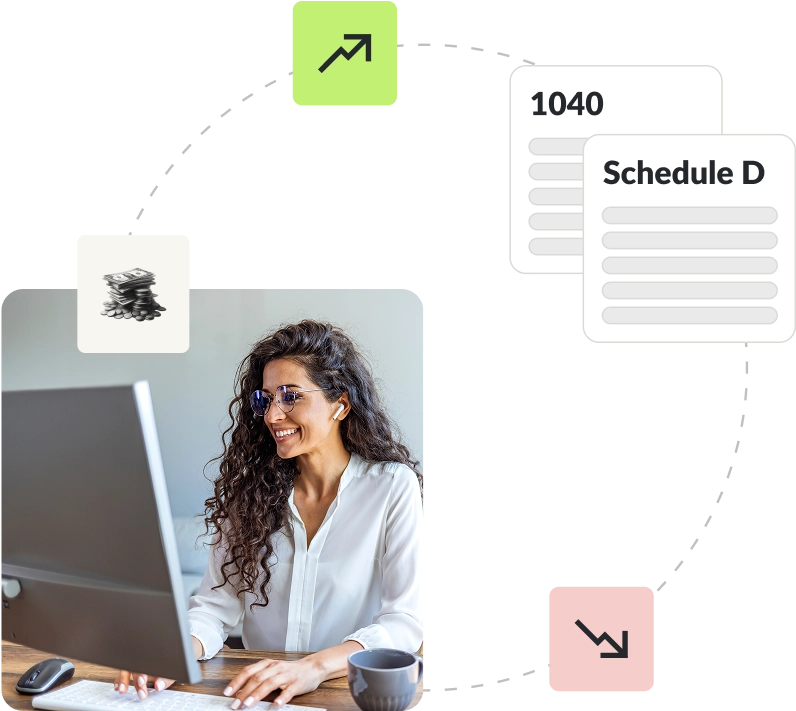2026 Connecticut State Tax Deadlines
Connecticut Individual income tax filing deadlines and extensions for 2026
If you are a resident or have been involved in business operations within Connecticut, you might be required to file Connecticut State taxes. Connecticut follows a progressive income tax structure with rates ranging from 3% to 6.99%, making it essential to understand the specific deadlines and requirements for 2026.
Connecticut business tax deadlines for 2026
C Corporations' deadlines and requirements
C Corporations in Connecticut must file and pay Corporate Business Tax by May 15, 2027, which follows Connecticut's specific due date schedule.
Filing requirements include:
- Complete Form CT-1120 (Corporation Business Tax Return)
- File via myconneCT
- Payment must be made by May 15, 2027
- Mail submissions must be postmarked by the due date
Extension to file taxes in Connecticut for 2026
The Extension Deadline for Connecticut Corporate income tax returns is November 16, 2027. Connecticut automatically grants a six-month extension following the state extension timeline without requiring separate forms. This is an extension to FILE, not an extension to PAY—payment is still due May 15, 2027.
Pass-through entities
Connecticut S Corporations and Partnerships tax deadlines for 2026
S Corporations and Partnerships must file in Connecticut by March 17, 2027.
Required forms include:
- Form CT-1120SI—S Corporation Return
- Form CT-1065—Partnership Return
Extension to file S Corporations and Partnerships taxes in Connecticut for 2026
The Extension Deadline for Connecticut S Corporations and Partnerships returns is September 15, 2027. Connecticut automatically grants a six-month extension without requiring separate applications. This is an extension to FILE, not an extension to PAY—payment is still due March 17, 2027.
Connecticut Individual tax considerations for 2026
Filing requirements and income thresholds
Connecticut Individuals must file a State income tax return if their gross income exceeds specific thresholds based on filing status.
The progressive tax rates for 2026 range from:
- 3% on lower income levels
- Up to 6.99% on higher income levels
Estimated tax deadline for Connecticut 2026
Estimated tax payments are due on the following schedule for calendar year filers:
- April 15, 2026
- June 15, 2026
- September 15, 2026
- January 15, 2027
Who must make estimated payments
You must make Connecticut estimated income tax payments during 2026 if you expect to owe a significant amount in Connecticut income tax after subtracting withholding and credits. Electronic payments are encouraged through the Connecticut online tax system.
Individual tax deadline for Connecticut 2026
Individual income tax returns are due April 15, 2027.
Available forms include:
- Form CT-1040—Resident Income Tax Return
- Form CT-1040NR/PY—Nonresident/Part-Year Resident Income Tax Return
Extension to file taxes in Connecticut for 2026
The Extension Deadline is October 15, 2027, to file your Connecticut Individual Income tax return. Connecticut automatically grants a six-month extension without requiring separate extension forms. This is an extension to FILE, not an extension to PAY—payment is still due April 15, 2027.
What Connecticut tax professionals need to know
Several key considerations make Connecticut's tax landscape unique for 2026. Connecticut's progressive income tax system provides moderate tax rates, and the state offers various business-friendly provisions. Electronic filing requirements continue to expand, and Connecticut provides specific tax planning opportunities.
Electronic filing requirements
Connecticut has implemented electronic filing systems for taxpayers:
- C Corporations and pass-through entities should file electronically through myconneCT
- Individuals can use Connecticut's online system for free electronic filing
- Business deductions can be processed more efficiently through electronic systems
- Professional preparers must use approved software vendors
Connecticut's unique tax features for 2026
Composite returns for pass-throughs
Connecticut allows composite returns for nonresident partners and shareholders.
R&D credit carryforward
Research and development credits can be carried forward for multiple years.
Progressive tax rates ranging from 3% to 6.99%
Connecticut provides competitive progressive tax rates for individuals.
Property tax credit for qualifying residents
Connecticut offers property tax credits for eligible taxpayers.
Pass-through entity taxation
Connecticut provides specific provisions for pass-through entities:
- Composite return elections for nonresident owners
- Entity-level tax elections are available
- Withholding requirements for nonresident partners/shareholders
- Credit mechanisms for entity-level taxes paid
Business incentives and credits
Connecticut provides various business tax incentives:
- Manufacturing assistance programs
- Research and development credits
- Job creation incentives
- Urban and industrial site reinvestment credits
Retirement income considerations
Connecticut provides certain retirement income benefits:
- Military retirement pay exemptions may apply
- Social Security benefits treatment considerations
- Pension income considerations for residents
Professional tax guidance
For complex Connecticut tax situations, consulting with qualified tax professionals through an accounting firm directory can help ensure compliance and identify available tax-saving opportunities.
Sources
- Connecticut Department of Revenue Services
- myconneCT Portal
- Connecticut Individual Income Tax Information
Don't miss State tax deadlines—Join Instead
State tax deadlines are approaching fast. While you're scrambling to gather documents and figure out complex deductions, you could be missing thousands in potential savings.
Instead's AI-driven platform does the heavy lifting for you—automatically identifying tax strategies, monitoring your accounts for save opportunities, and ensuring you claim every deduction to which you're entitled. Generate comprehensive reports that make tax planning simple. No more guesswork, no more missed opportunities.
The material discussed on this page is meant for general illustration and/or informational purposes only and is not to be construed as investment, tax, or legal advice. You must exercise your own independent professional judgment, recognizing that advice should not be based on unreasonable factual or legal assumptions or unreasonably rely upon representations of the client or others. Further, any advice you provide in connection with tax return preparation must comply in full with the requirements of IRS Circular 230.
Please note that if any due date falls on a federal or state holiday or weekend, it may be adjusted to the next business day. Always verify current deadlines with the appropriate tax professional and authorities.
Looking for a different year?

























